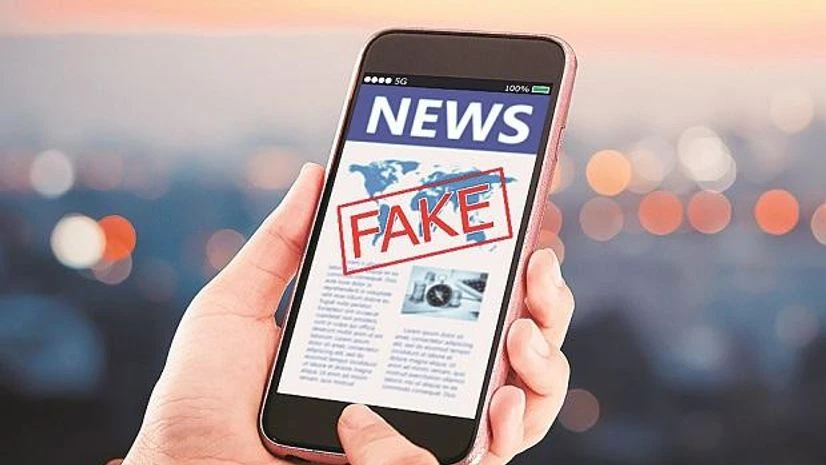In order to track fake and misleading news online related to the government on online platforms such as Facebook and Twitter, the Centre has decided to create a fact-check unit (FCU).
The content labelled as such by the FCU will have to be taken down by online intermediaries if they wish to retain their "safe harbour", which is the legal immunity they enjoy against third-party content online.
The ministry of electronics and information technology (Meity) notified amendments to the Information Technology Rules, 2021, which will allow the IT ministry to appoint a fact-checking body that will take a call on whether online information related to the Union government is accurate.
In January this year, the ministry stated that any news item identified as "fake" by the fact-checking unit of the Centre's nodal agency to disseminate information, Press Information Bureau (PIB), will not be allowed to go online on any platform. However, the final draft has removed the reference to the PIB.
The proposal had earlier drawn a lot of criticism. The Editors Guild of India had said that the "determination of fake news cannot be in the sole hands of the government and will result in censorship of the press". The News Broadcasters & Digital Association said it would "have a chilling effect on the media" and should be withdrawn.
Also Read
The new rules
On April 6, the Union government promulgated certain amendments to the Information Technology (Intermediary Guidelines and Digital Media Ethics Code) Rules, 2021, including a provision for FCU to flag fake, false and misleading online content related to the government.
The new rules state that an online intermediary — including social media platforms such as Twitter, Facebook, and YouTube and internet service providers such as Airtel, Jio and Vodafone Idea — should make "reasonable efforts" to not host content related to the central government that is "identified as fake or misleading" by an FCU that the IT ministry may notify.
The rule requires intermediaries to exercise due diligence once the FCU identifies content as "untrue", or they can lose "safe harbour" protection under Section 79 of the IT Act from liability of facing prosecution in certain cases over what third parties post on their platforms.
In essence, if any piece of information is marked as fake by the FCU, social media sites will have to take down such posts, and internet service providers will have to block URLs of such content.
The concerns
Civil society groups have said that the new rules can hamper speech on online platforms.
Internet Freedom Foundation (IFF), a non-governmental organisation that conducts advocacy on digital rights, said that the new rules would hamper the fundamental right to speech and expression, particularly for journalists, activists and news publishers.
"The fact-check unit could effectively issue a takedown order to social media platforms and even other intermediaries across the internet stack, potentially bypassing the process statutorily prescribed under Section 69A of the IT Act, 2000," IFF said.
Access Now, a non-profit organisation that defends the digital civil rights of people worldwide, said that while the notified amendment, unlike the previous proposal, does not designate the PIB as the main fact-checking agency, its ultimate effect is the same. "It renders government agencies, as chosen by the IT ministry, the final arbiters of truth online," it said.
The Editors Guild of India and the Association of Indian Magazines have filed petitions in the Bombay High Court (HC) claiming that the Rules are arbitrary and unconstitutional.
The Centre on censorship
Minister of state for electronics and IT, Rajeev Chandrasekhar, "assured" that the government-backed fact-checking body will work in a credible way in a bid to address the concerns.
He said that doubts in people's minds that power will be misused by the agency assigned to fact-check would be cleared, and the assigned agency would be given a list of dos and don'ts that they will have to adhere to.
The intermediaries, he said, who choose to keep the content declared as misleading will have to deal with the person who is aggrieved in a court of law. He explained that it is not mandatory to take down what the notified organisation says but then deal with it in a court of law.
The Union government said that the "role of the fact-checking unit is restricted to any business of the Centre, which may include information about policies, programmes, notifications, rules, regulations, implementation thereof, etc."
The Centre said the FCU would only identify "fake or false or misleading information" and not any opinion, satire or artistic impression. "Therefore, the aim of the government regarding the introduction of the impugned provision is explicitly clear and suffers from no purported arbitrariness or unreasonableness," the Centre said.
Members of FCU
The appointments of the members of the proposed new entity will be made by the Union government. The government will pick nodal officers from different ministries.

)
